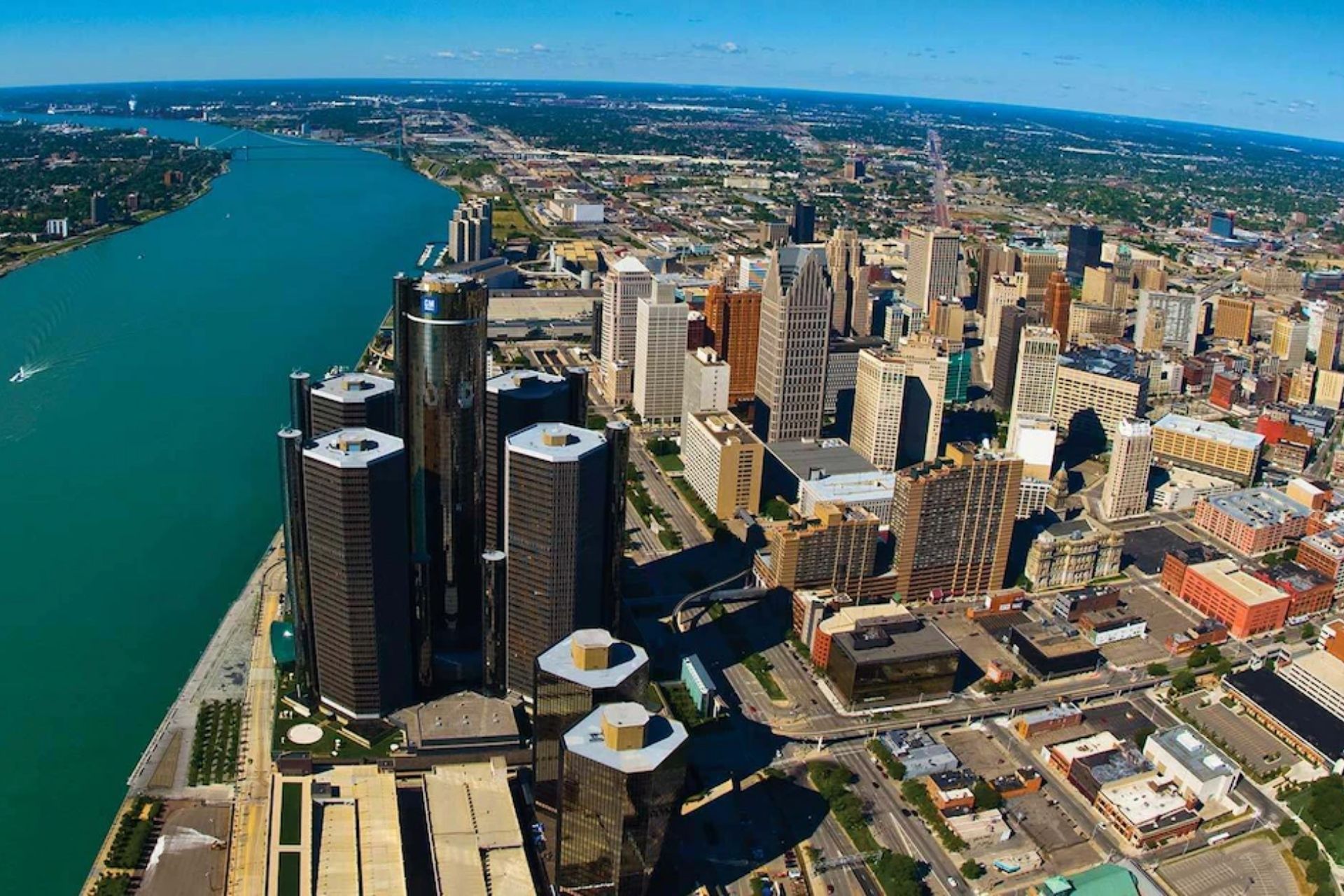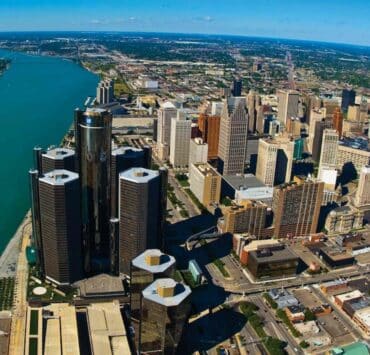Detroit’s Resurgence: When Affordability Intersects with Opportunity
Detroit, once known as the heartbeat of America’s automotive industry, has weathered its share of storms.
From the highs of being the epicenter of innovation to the lows of economic downturns, it’s a city that has seen both boom and bust. Yet, like a phoenix, it always finds a way to rise from the ashes.
Today, as we stand in 2023, Detroit is undergoing a transformation that’s both inspiring and noteworthy. Its tapestry, interwoven with rich history, cultural vibrancy, and economic rebirth, paints a picture of a city that’s rediscovering its mojo.
Join us as we dive deep into the facets of Detroit’s current landscape, from its promising economic indicators to the pulsating property market, and uncover the narrative of a city that refuses to be kept down.
Detroit’s Economic Canvas:
- In-Depth Economic Metrics:
- Income Dynamics: The city’s median wage stands at $36,000 annually, reflecting its workforce’s earning capacity.
- Property Landscape: With the average home pegged at $270,000 in 2023, the housing market is within the grasp of many, especially when compared to other major cities.
- Tax Structures: Residents typically contribute $1,268 annually for real estate taxes, with a consistent state income tax of 4.25% in Michigan.
- Utilities and Food Costs: Annual utility expenses average around $3,480, while the food expenditure resonates at $8,277, indicating the city’s living cost dynamics.
Housing: A Deep Dive into Affordability: Detroit’s housing sector remains a highlight in the national market. While the average Detroiter spends about 6% of their monthly income on mortgage-related costs, financial advisers nationwide often suggest a cap of 28-30%. This remarkable affordability quotient has been a cornerstone of Detroit’s appeal to newcomers and existing residents alike.
Detroit’s Economic Revival: Tracing the Journey: Gone are the days when Detroit’s narrative was dominated by tales of economic downturns. Today, it stands as a testament to resilience. Giants like General Motors, Ally Financial, and Quicken Loans haven’t just set up shop; they’ve expanded, innovated, and thrived. The tech sector’s burgeoning presence, marked by stalwarts like Microsoft, Google, and LinkedIn, augurs a diversified economic outlook. Collaborative initiatives, like Apple’s ambitious venture with Michigan State University, hint at a city brimming with innovation.
Cultural Landscape: Beyond the Ordinary: Detroit is a melting pot of flavors, stories, and experiences. Its culinary offerings range from Greektown’s Mediterranean flavors to Corktown’s hearty American fare. Detroit doesn’t just offer food; it offers narratives on a plate. Meanwhile, places like Belle Isle Park, compared to global icons like New York’s Central Park, represent the city’s commitment to blending urban life with nature’s serenity.
Property Markets: Perspectives and Personal Journeys: Jason Justice, a property aficionado, captures the spirit of many in Detroit. For him, property scouting transcends business; it’s about legacy. It’s a future for his children and generations to follow. Yet, the market has its challenges. A landscape where properties were once fiercely contested, often selling above the asking price, is now more tempered, more calculated.
Michigan’s property pulse has raced in recent times, with values leaping by 32% in just two years, as documented by Norada Real Estate Investments. But as with all growth stories, there are inflection points. The market might be heading towards one, with projections indicating a potential 2% rise until July 2023 before possibly plateauing.
Veterans like Gaston Munoz of Munoz Realty have observed this evolution firsthand. The frenetic pace of sales, driven by low inventories and attractive interest rates, is giving way to a more stable, albeit competitive, market.
Kyle Swink, with over a decade at Max Broock Realtors, juxtaposes the current scenario with the tumultuous post-2008 phase. The market, he feels, is maturing. While inventory remains a constraint, he’s optimistic about the balance gradually being restored.
Yet, looming over these discussions is the specter of interest rates. As Swink elucidates, buyers have been cushioned by low rates for so long that the current escalation necessitates recalibration. But both Swink and Munoz are unwavering in their optimism. The property market is evolving, not regressing.
Related posts:
 10 Most Affordable Cities To Buy A Home In 2023
10 Most Affordable Cities To Buy A Home In 2023
 Mortgage Credit Squeeze: Decade-Low Availability and its Implications
Mortgage Credit Squeeze: Decade-Low Availability and its Implications
 Zillow’s 2024 Home Price Forecast Predicts a 6.5% Increase
Zillow’s 2024 Home Price Forecast Predicts a 6.5% Increase
 FHFA Conforming Loan Limit Hike to $766,550 in 2024: Implications and Analysis
FHFA Conforming Loan Limit Hike to $766,550 in 2024: Implications and Analysis
 HELOC vs Home Equity Loan: Choosing Your Second Home Financing Wisely
HELOC vs Home Equity Loan: Choosing Your Second Home Financing Wisely



